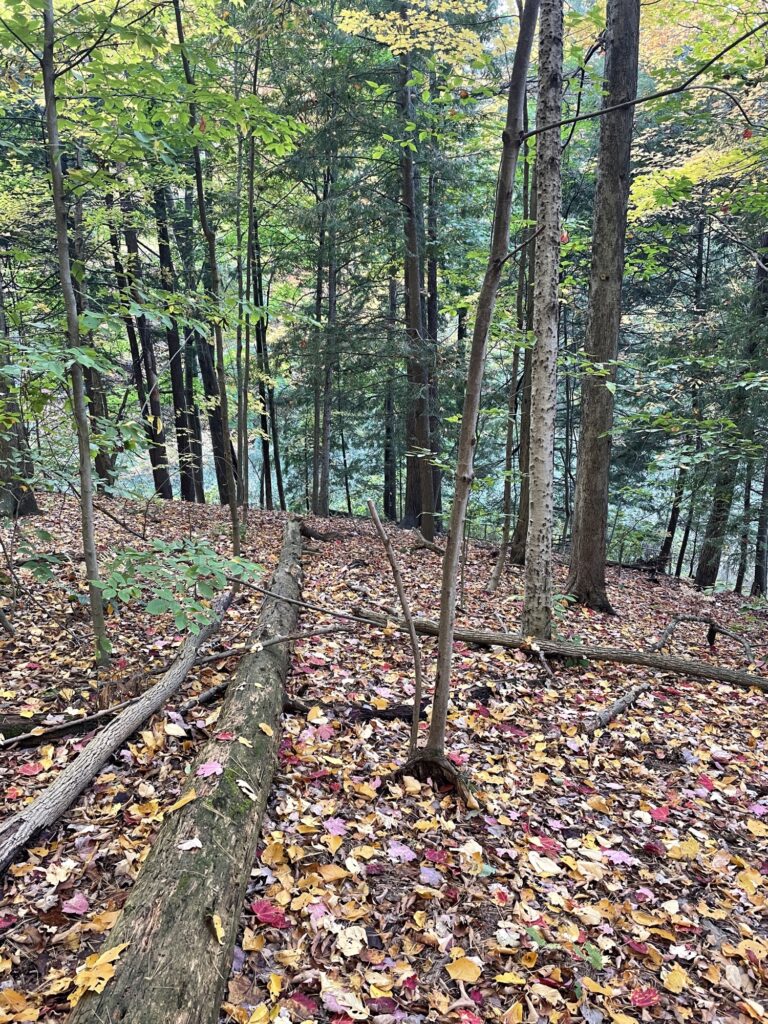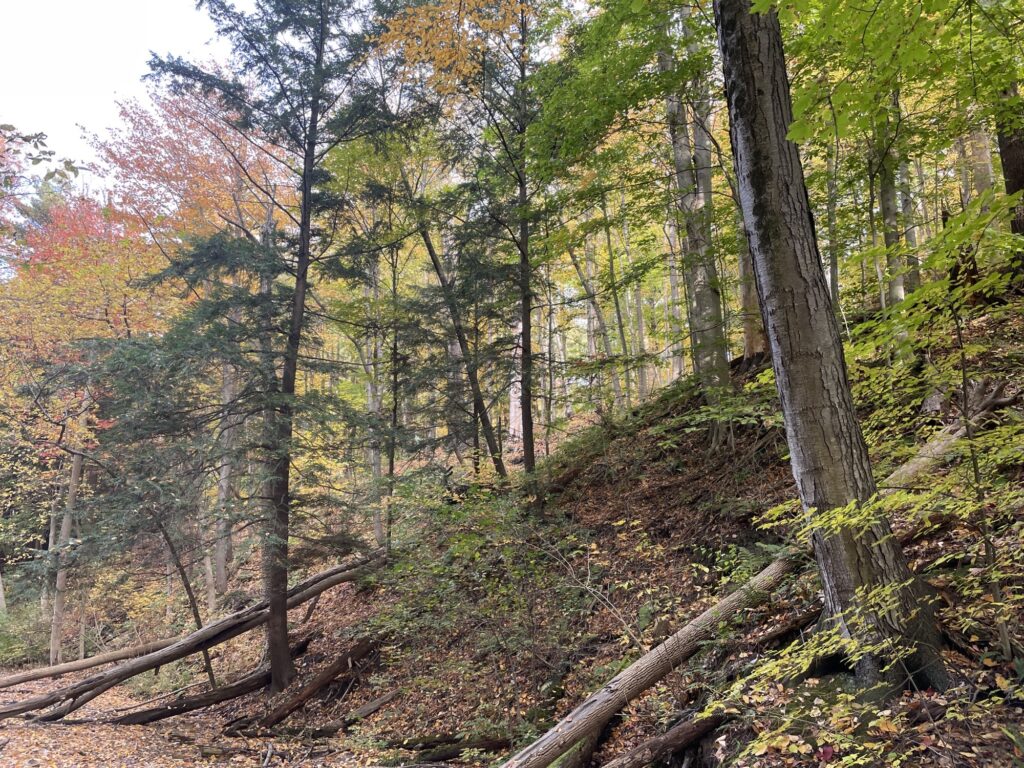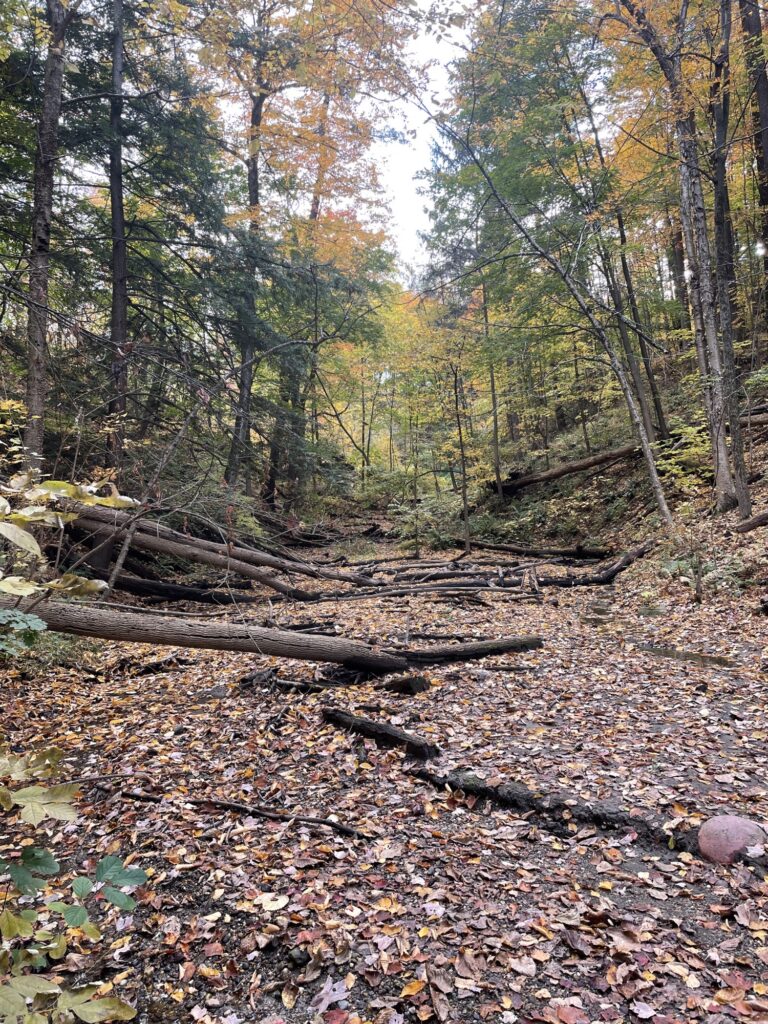The location I chose for my phenology assignment is located among a forested area on UVM’s Trinity Campus. I chose this location partly because of convenience with my schedule, and also the surprisingly diverse plant life located in these woods.
I mostly chose a large area to observe because I kept exploring more and more and did not want to confine myself. The site covers a large riparian zone and starts off on top of a hill in the woods and then slowly drops down to an open stream.



Woody Plants:
- Tsuja canadensis – Eastern hemlock
- Pinus strobus – Eastern white pine
- Acer rubrum – red maple
- Acer saccharum – sugar maple
- Acer pensylvanicum – striped maple
- Acer platanoides – Norway maple
- Fagus grandiflora – American beech
- Fraxinus americana – white ash
- Ulmus americana – American elm
Herbaceous Plants:
- Several species of Carex
- Glyceria striata – fowl manna grass
- Solidago flexicaulis – broadleaved goldenrod
- Solanum dulcamara – bittersweet nightshade
- Plantago major – broadleaf plantain
- Invasive Euonymus sp.
- Circaea canadensis – large enchanter’s nightshade
- Several members of Asteraceae
- Matteuccia struthiopteris – ostrish fern
- Onoclea sensibilis – sensitive fern
- Polystichum acrostichoides – Christmas fern
- Dryopteris intermedia – intermediate wood fern
Wildlife:
- Cyanocitta cristata – blue jay (foraging)
- Sciurus carolinensis – gray squirrel (foraging)
Map Location:
